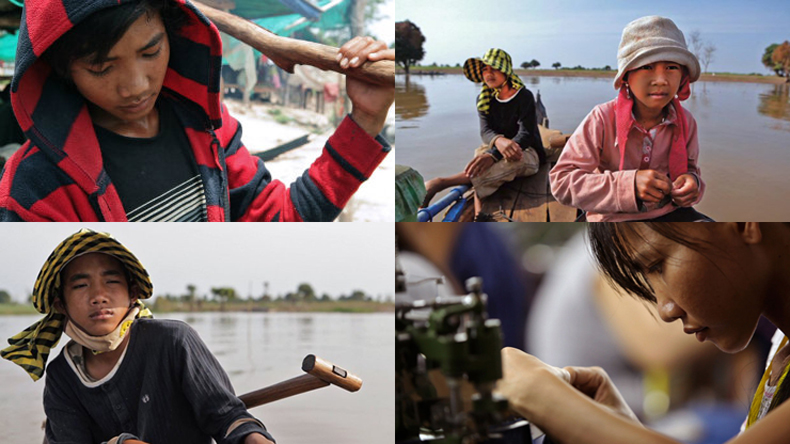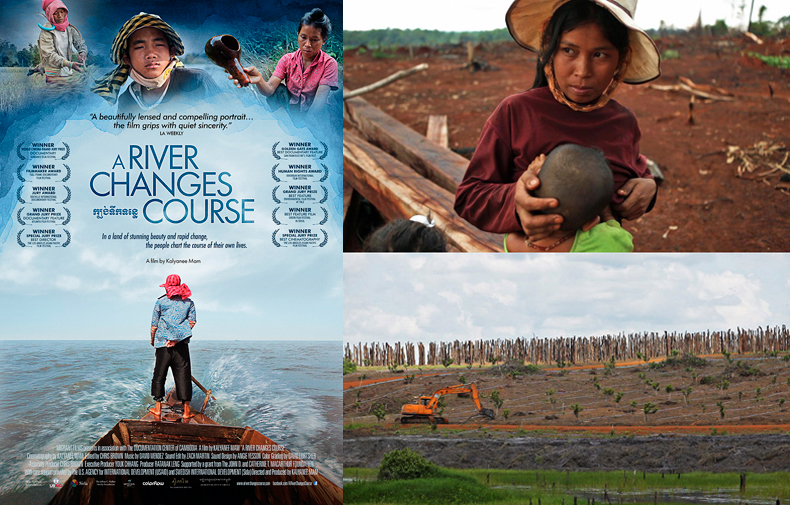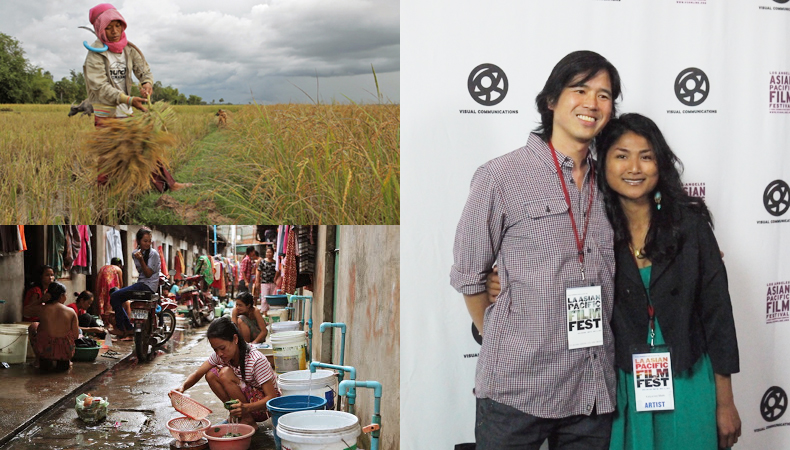Jul 01, 2013 8 Questions with: Kalyanee Mam
Downloading, streaming, and even BluRay–all of the latest and greatest ways to watch a movie pale in comparison to a proper film festival screening. The energy of like-minded moviegoers can’t be beat and neither can meeting the filmmaker. When I was helping out at this spring’s Los Angeles Asian Pacific Film Festival, I had the pleasure of introducing Kalyanee Mam’s debut feature, A River Changes Course. The fly-on-the-wall documentary about the decisions and challenges faced by modern Cambodia is subtle yet powerful, gorgeous, and smart. I handled a Q&A session with Kalyanee afterward, as well, and found her own story to be just as interesting and inspiring. And guess what? The San Francisco-based filmmaker is also super nice! Now it’s your turn to meet her.
What are you currently working on?
I just completed my first documentary feature, A River Changes Course, about three young Cambodians and their families coping with the challenges of a rapidly changing world. The film won the Grand Jury Prize for World Cinema: Documentary at Sundance, the Golden Gate Award for Best Documentary Feature at the S.F. International Film Festival, and the Special Jury Prize for Best Director and Best Cinematography at the L.A. Asian Pacific Film Festival. We now plan to screen the film in 60 villages and universities all across Cambodia. For many villagers living in remote parts of the country and with little access to information and media, the film will be their first opportunity to not only watch, but discuss issues people in the country are currently facing, such as deforestation, land grabbing, overfishing, and the rights of garment factory workers.
How would you describe your job?
I was a lawyer before I went into filmmaking, assisting and informing clients of their rights as refugees and working with governments to reform their labor or commercial laws. But I’ve always viewed myself as a storyteller. Although as a filmmaker, the medium through which I express my stories have changed, my passion for documenting and sharing inspiring, and personal stories have only grown deeper. I believe we are all born storytellers. And I believe the more we listen and share our stories, the more we can learn about the world which we are a part.

Is there such thing as an average work day? (Do you ever wish there was?)
Either in production out in the field or working on post, I don’t think I’ve ever had an average work day. Whether gaining access into a garment factory or sifting through footage, I’m constantly engaged and grappling with unique challenges all aimed at telling the most compelling story possible. Although I never wish for an average work day, after weeks of being away, I do sometimes long to be home, hiking along the coast or swinging on my hammock.
Do you find it difficult to focus on one project when there is so much to do?
As a director, producer, and cinematographer I’m constantly striving to balance the needs of different aspects of my film project. However, I find that focusing my efforts on one thing at a time helps me to remain engaged. With iPhones, computers, and various technology, we try to multitask and get as much done as possible. But by doing too much, I believe we sometimes end up losing our connection to the experiences of the moment.
As a kid, what did you want to be when you grew up?
When I was a kid, I wanted to be so many things–from a painter to a writer to an astronaut and a journalist. I was intrigued by art, storytelling, and questions related to the universe. I feel fortunate that with filmmaking I can combine all of these interests, weaving stories about the questions intrinsic in life in an artful and beautiful way.
What are you reading at the moment?
I just finished Garden of Eden by Ernest Hemingway and The Bluest Eye by Toni Morrison, polar opposites in terms of style and storytelling, but both deeply passionate in their portrayals. I love literature, more even than films. The images and characters I conjure in my imagination are often times more powerful than any I could find on screen. While shooting A River Changes Course, I was especially inspired by the works of John Steinbeck, relating the human struggle to find balance in progress at the turn of the century in rural America. A struggle, not so different from that of Cambodia today. In Grapes of Wrath there is a scene of a man bulldozing over a family farm in Oklahoma. The family approaches the man and asks why he has no mercy and doesn’t he know how it feels to have to feed his family? The man responds that it is because he must feed his family that he is doing his job and bulldozing the land.
Any interesting restaurants, shops, or places you’ve discovered on the film festival circuit?
I was quite surprised to find some rather tasty bites at Full Frame Documentary Film Festival in Durham, NC. There was an eclectic collection of fresh farm to table foods as well as southern comfort food and taco trucks. The collard greens and hush puppies were mouth-watering delicious!
Where are some upcoming screenings where A River Changes Course can be seen?
A River Changes Course will have its theatrical release at IFC in N.Y. on October 4 and Laemmle Beverly Hills in L.A. on October 11. We will also have various special screenings in San Francisco, Chicago, and Washington, DC, leading up to the theatrical release. Please check out our website for the latest screening updates!
For more great Imprint content, be sure to follow us on Twitter, Instagram, and Facebook!




